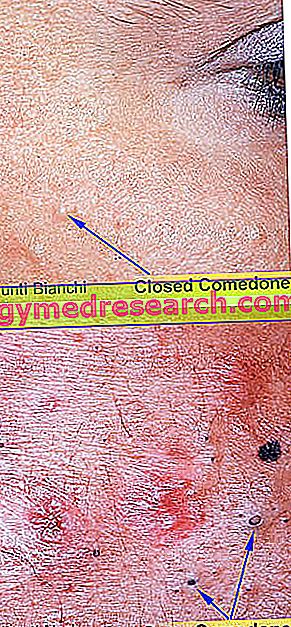FROBEN ® is a drug based on Flurbiprofen
THERAPEUTIC GROUP: Non-steroidal anti-inflammatory and antirheumatic drugs
IndicationsAction mechanismStudies and clinical effectiveness Usage and dosage instructionsWarnings Pregnancy and lactationInteractionsContraindicationsUndesirable effects
Indications FROBEN ® Flurbiprofen
FROBEN ® is indicated in the symptomatic treatment of painful states associated with inflammatory processes of both rheumatic and post-traumatic origin.
The great therapeutic versatility of this medicine allows it to be used in the orthopedic, pneumological, dental and gynecological fields.
Mechanism of action FROBEN ® Flurbiprofen
FROBEN ® is a medicine particularly used in the clinical setting, given its marked anti-inflammatory, analgesic and antipyretic activity and given the different pharmaceutical forms on the market.
The therapeutic characteristics envisaged for FROBEN ® are exercised by its flurbiprofen active principle, a molecule derived from phenylpropionic acid and listed among the non-steroidal anti-inflammatory drugs, with which it shares the main mechanism of action.
More precisely the flurbiprofen, taken orally and absorbed at the level of the enteric mucosa, reaches the plasma peak in just 90 minutes, distributing itself to the various tissues bound to the plasma proteins.
Once in place it is able to inhibit an enzymatic class known as cyclooxygenase, involved in the conversion of membrane phospholipids such as arachidonic acid into chemical mediators endowed with pro-inflammatory activity known as prostaglandins and prostacyclins, capable of increasing the vascular permeability and subsequent recruitment of inflammatory cells.
In addition to turning off the phlogistic action induced by prostaglandins, flurbiprofen is useful in reducing the pain stimulus, exercised by different chemical mediators released in situ and active at the level of the central nervous system, and the pyrogen induced by inflammatory cytokines such as IL1 and the TNF alpha.
After its activity, this active ingredient, following a mainly renal metabolism, is eliminated in the form of inactive catabolites mainly through the urine.
Studies carried out and clinical efficacy
1. FLURBIPROPHENES AND BETA ENDORFINE
J Anesth. 2011 Oct; 25 (5): 679-84. Epub 2011 Jul 2.
An extremely interesting study that demonstrates how the analgesic power of the flurbiprofen taken in the pre-operative phases could have a vicarious action on fentanyl, which can significantly increase the concentrations of beta endorphins.
2. THE FLRUBIPROPHEN IN THE CONTROL OF INFLAMMATORY MARKERS
Zhonghua Yi Xue Za Zhi. 2009 Oct 27; 89 (39): 2751-3.
Work conducted on 20 patients demonstrating how the use of flurbiprofen pre-anesthesia may be effective in controlling blood concentrations of some inflammatory markers such as IL-6, following the removal of mammary carcinomas.
3. FLURBIPROPHEN IN THE POST-OPERATIVE PAIN
Cochrane Database Syst Rev. 2009 Jul 8; (3): CD007358.
Review study, which after reviewing numerous studies in the literature, demonstrates the efficacy of single administration of flurbiprofen at 50 - 100 mg in effectively controlling post-operative pain of medium and severe severity for about 6 hours.
Method of use and dosage
FROBEN ®
100 mg flurbiprofen-coated tablets;
Flurbiprofen 5mg syrup each ml of solution;
100 mg flurbiprofen suppositories;
Flurbiprofen mouthwash at 0.25%;
Solution to be sprayed at 0.25% flurbiprofen;
Flurbiprofen 200 mg prolonged release hard capsules;
Effervescent granules of 100 mg flurbiprofen per sachet.
The dosing schedule useful in the treatment of phlogistic states with enteral flurbiprofen (oral and rectal) should provide for the daily intake of 100-200 mg in several intakes interspersed with periods of at least 6 hours.
A dosage adjustment is necessary in the case of elderly patients or patients with liver and kidney diseases.
For the treatment of painful states on an inflammatory basis of the oro-pharyngeal cavity, FROBEN ® should be used instead in mouthwash or spray, to be taken with 2-3 rinses or daily sprays.
Warnings FROBEN ® Flurbiprofen
The intake of FROBEN ® should be understood as symptomatic therapy of painful states associated with inflammatory pathologies, and not as long-term therapy, given the potential side effects that result from prolonged treatments over time.
The use of flurbiprofen should be under medical supervision, so that potential risk factors and prescriptive appropriateness can be carefully evaluated.
Particular attention should be paid to patients suffering from liver, kidney, gastrointestinal and cardiovascular diseases, for whom NSAID-based therapy is generally associated with a greater risk, intended both as an incidence of new adverse events and as an aggravation of the already present pathological conditions .
Following the appearance of the first side effects, the patient should immediately inform his doctor and possibly lean towards the suspension of the therapy in progress.
It is recommended to carefully evaluate the chosen pharmaceutical format, given the presence in FROBEN ® of lactose and sucrose tablets and in FROBEN ® syrup and sucrose spray.
In fact, the presence of lactose could determine the appearance of side effects in patients suffering from lactase enzyme deficiency, lactose intolerance or glucose-galactose malabsorption syndromes.
The latter could also lead to the occurrence of adverse reactions to sucrose, which is not recommended in patients with fructose intolerance or sucrase isomaltase enzyme deficiency.
PREGNANCY AND BREASTFEEDING
The intake of FROBEN ® is contraindicated during pregnancy as flurbiprofen-induced inhibition on prostaglandin synthesis could be dangerous for fetal health, increasing the incidence of cardiovascular and respiratory tract malformations and the frequency of unwanted abortions.
This contraindication is also justified by the increased risk of bleeding and the reduction in the frequency of uterine contractions, which could seriously complicate the birth.
The contraindications also extend to the next stage of breastfeeding, given the ability of the active ingredients to be secreted, albeit minimally, in breast milk.
Interactions
Flurbiprofen, especially following systemic absorption, could interact with numerous active ingredients, causing the onset of changes in both the pharmacokinetic profile and the safety profile of the drugs used.
Among the most important interactions extrapolated from the scientific literature, we can remember that with:
- Oral anticoagulants and inhibitors of serotonin reuptake, responsible for the increased risk of bleeding;
- Diuretics, ACE inhibitors, angiotensin II antagonists, methotrexate and cyclosporine, associated with an increase in the toxic effects of flurbiprofen especially on kidney and liver;
- Non-steroidal anti-inflammatory and corticosteroids, responsible for significant damage to the gastric mucosa;
- Antibiotics, whose intake is often linked to a significant variation in the therapeutic profile of both drugs.
For this reason it is very important that the patient reports the possible need to resort to contextual therapies, so that the doctor can evaluate the possible interactions and make the administration as safe as possible.
Contraindications FROBEN ® Flurbiprofen
The intake of FROBEN ® is contraindicated in patients who are hypersensitive to the active ingredient or to one of its excipients, hypersensitive to acetylsalicylic acid and other analgesics, suffering from hepatic, renal and cardiac insufficiency, bleeding diathesis, intestinal bleeding, ulcerative colitis, Crohn's or past history for the same conditions.
Undesirable effects - Side effects
The therapy based on non-steroidal anti-inflammatory drugs such as flurbiprofen, is often associated with the appearance of numerous side effects, especially following the systemic drug intake.
While the topical or local application of the active ingredient is combined with the appearance of minor side effects, generally limited to the site treated, the oral administration of the drug could be associated with the appearance of nausea, vomiting, diarrhea, constipation, gastritis and in more severe cases ulcers with possible perforation and hemorrhage, headache, dizziness, drowsiness, hypersensitivity manifestations such as rash, urticaria, angioedema, bullous reactions and photosensitivity.
Different studies have also shown how prolonged intake of non-steroidal anti-inflammatory drugs over time can facilitate the appearance of cardiovascular, hepatic and renal diseases or aggravate their clinical course, if they are already present.
Note
FROBEN ® can be sold only with a medical prescription.
FROBEN ® in mouthwash or spray can be sold without a prescription.



